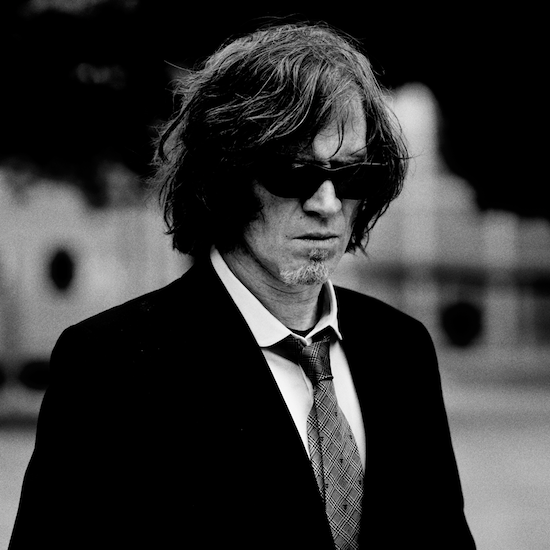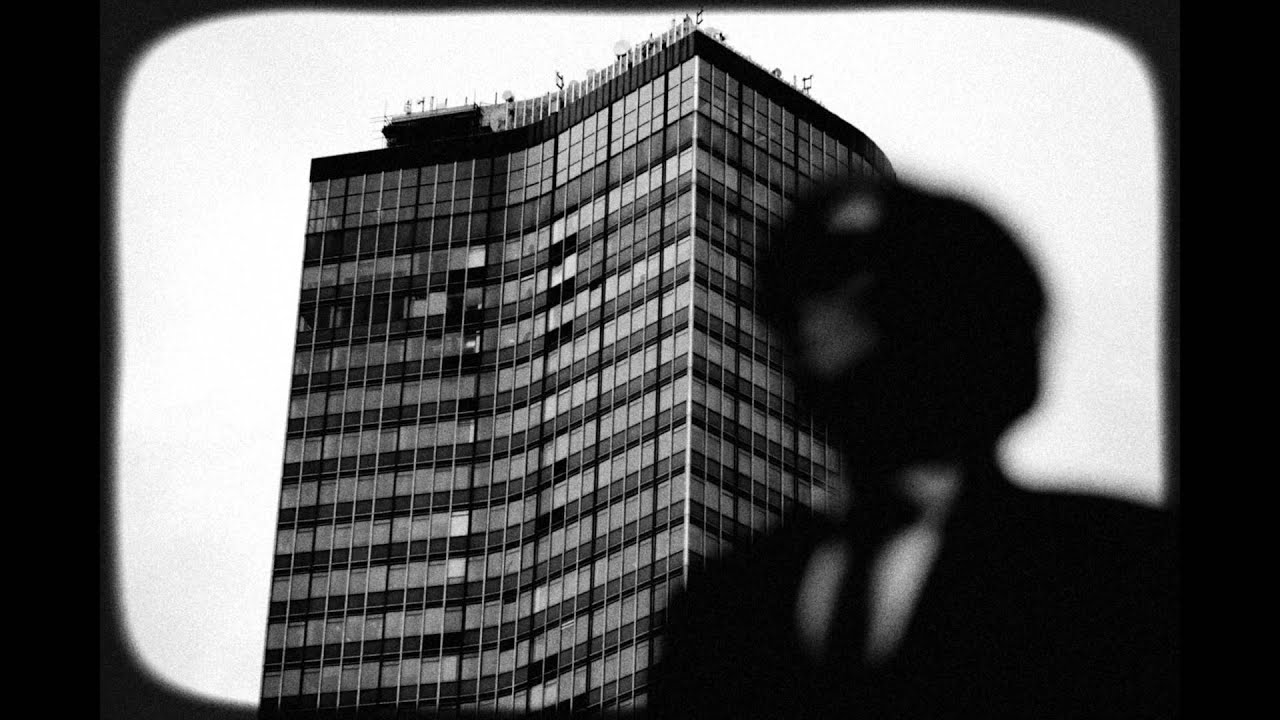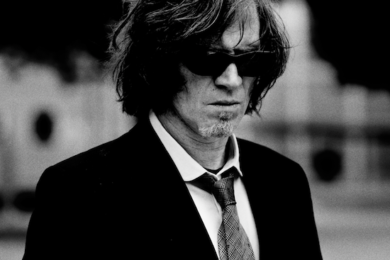Such is the ubiquity of Mark Lanegan, both as solo artist and serial collaborator, that it could be all too easy to succumb to temptation and take him and his colossal vocal talents for granted. Or at least it would be if his internal quality control filter wasn’t as finely tuned as it is. Displaying the kind of work ethic that would leave lesser talents gasping for breath, Lanegan’s legacy has see him leave his mark across a variety of musical genres with the enthusiasm of a man seizing all of the opportunities life has to give.
Since last meeting the Quietus at the tail end of 2011, Lanegan released Blues Funeral, his first solo album in seven years, which was then followed by endless touring, collaborations with British musician Duke Garwood (Black Pudding) and Moby (the Record Store Day 7" ‘The Lonely Night’) and his second set of covers in the shape of Imitations. And not a dud among them. If anything – and like a fine wine – Lanegan improves with age. The combination of life experiences and a constant creative hunger that has seen him explore a variety of musical territories have conspired to offer a body of work that is as broad as it is deep.
With a regularity you could set your watch by, Lanegan is set to release two new and very distinct entities. Phantom Radio, his new album, consolidates and builds on the Krautrock-inspired musical themes of Blues Funeral as Lanegan, with the help of producer Alain Johannes, fuses his blues roots with electro flourishes to take his music even further. This is set to be preceded by a five-track EP, No Bells On Sunday, which is an even more esoteric collection that confirms Lanegan’s refusal to remain rooted to the same spot. Watch Steve Gullick’s video for ‘Sad Lover’ from the EP below.
Despite having just flown in from Belgium and barely having had any time to check in to his hotel, Mark Lanegan is on fine form. His handshake is firm and friendly, his eyes sparkle with life and he’s given to throwing his head back to emit self-deprecating chuckles and full-throated laughs. Our time is at a premium and so we begin…
What keeps you motivated?
Mark Lanegan: My mortgage payments! No, I love traveling and I love playing music. It’s a great life and I can’t imagine doing anything else. I like to have something going and I always like to have something that I’m working on or working towards. I just love working even though I don’t really consider writing and recording to be work. It’s just the way I do it.
Do you ever get any downtime?
ML: I’ve had a lot of downtime this year. In fact, this has been my quietest year in the last ten, in terms of shows. I did those show last week with Nick Cave & The Bad Seeds and I just did some shows over the weekend and I have some shows scheduled in December and maybe something in October and that’s it for the whole year. I made a record this year but as far as the traveling and the touring goes, not much. I’ve had a lot of downtime.
Your new material – the Phantom Radio album and No Bells On Sunday EP – is very much a continuation of the electronic music that characterised Blues Funeral. What’s leading you in that direction?
ML: It’s a reflection of what I’m into and taking some elements of music that I enjoy listening to and then applying it to what I’m doing. I don’t know if that will last forever but it’s what I’m into right now. I look at every record as an opportunity to enjoy myself and try new things. That’s the way it’s been going lately.
Tell me about the compositional process. You used a phone app called FunkBox for these new songs?
ML: Right. It’s an app that has a collection of vintage drum machine sounds on it so I don’t have to actually have to hook up any of my drum machines, which I sold recently because this app is too easy to use. I used the app on the record for a couple of the songs. But yeah, I used FunkBox to compose a few of the songs by writing the drum parts and then added to it. It’s great to use because it’s easy and I’m the kind of guy who always chooses the path of least resistance!
As a very lapsed Catholic, I find your use of Biblical and religious imagery in your songs intriguing. What draws you to it?
ML: I don’t even know but it has become the language that I used to make songs with. Early on I heard gospel music and I was drawn to some of that stuff as well as the blues. When I started writing songs that kind of stuff came to me naturally but I probably use it too much.
I’m not really a religious person. My parents were the kind of people that just allowed us kids to do whatever we wanted to do. I did go to church a few times with certain friends and I found that it really wasn’t for me. My mom and certain members of my family are Catholic and they used to go to church and midnight mass and there really is nothing more tedious than a Catholic wedding but the whole pomp and circumstance certainly held some appeal and it still does from a distance.
How much of your material is autobiographical?
ML: Well, there’s always something of me in there but the songs are an opportunity to create some kind of mini-reality or fantasy. I kind of think of them as pieces of dreams but there’s sometimes more there than just a bit of a personal aspect. Some of my songs are a snapshot of my interpretation of something; it could be something that’s happened to me or something that I’ve seen or something that I’ve heard or something that happened to somebody I know.
But I don’t really sit and think about the big picture or what the whole thing means. I know where certain lines come from and some of them are definitely me but you’d have to know me real well to know it. Sometimes these ideas reveal themselves to me much later and occasionally they’ll strike me in an emotional way, but it’s really rare for that to happen – when it does it’s like, "Oh, shit! Wow!"
You’ve been listening to a lot of 80s music on the Sirius satellite radio channel and have said that you’ve waited until your 40s before ripping off the 80s. Surely as someone who grew up in the 80s it’s less a case of ripping things off like say, younger generations who weren’t there have, than channeling something that was part of your environment?
ML: Well, all music is an interpretation of something that came earlier with the personal bent of the person who is doing the interpreting. Obviously, you can’t create music in a vacuum. At least for me, the basis of the music that I create is the music that I’ve heard but it’s with something that comes from me. So I don’t know if I’m specifically doing stuff from the 80s, I’m doing what anybody does.
You’ve hooked up with producer Alain Johannes again…
ML: Yeah, he’s hugely talented. I mean, I’m like a breakfast cook and he’s like a real artist. He writes poetry every day and he makes music every day that’s fantastic. I can just describe something to him in the tiniest way and he can make it live really quickly. He’s the most important aspect of the music that I make and that’s why it’s really easy to call on my influences. Everything was harder before I started making music with him. The last 10 years have been a lot easier!
You’re also working with your girlfriend, Shelley Brien, on the album. How easy or difficult is it to move from a personal environment to a professional one with her?
ML: We met when she was singing with my band so that relationship happened before our personal one. She’s a great singer and it’s really not that big a deal. I mean, anybody that comes and plays on my stuff, they do whatever I ask them to do or I give them an idea and they do whatever they want to do and it’s no different with her. It didn’t take very long to do the songs she did and it was something that we both enjoyed.
You’re going to be hitting your half century this year. What’s the view like from there?
ML: It’s actually really good. I’m happy that I’ve gotten older and I enjoy life. I’m more active than I was at 20, that’s for sure! I’m glad I turned a corner at some point. I think if you live long enough then you can get to a place of comfort and that happened for me many years ago but it took a long time. Life seemed like a difficult puzzle for a long, long time but now it’s not like that. I see things much more simply and with a simplistic view life is more a pleasure and not a drag.
I saw Mark E. Smith play live a few years ago and it was so incredible and life-affirming and it was one of the greatest experiences ever. I just did a bunch of shows with Nick Cave and it was the same thing. Those are guys who are on the other side of 50 but still completely kick ass, the same as Neil Young or Leonard Cohen, and those are the guys I look to for inspiration as I turn that corner.
I recently saw you perform with Josh Homme at the Royal Festival Hall as part of Meltdown. It seemed as if you couldn’t get off the stage quick enough the moment you’d finished your guest slot. Is performing live something you’re uncomfortable with?
ML: The halfway point between the stage and the stage door is really uncomfortable but while I’m out there it’s fine. The walking on and off is something that I like to get done in a hurry!
No Bells On Sunday is out on August 25 and Phantom Radio in the autumn, via Heavenly Recordings




